January 18, 2021.
Tire Registration Fines Increase by Inflation Adjustment for the New Year
On January 11th, the Department of Transportation issued in the Federal Register a notice of “Revisions to Civil Penalty Amounts.”
This notice increases penalty amounts for each violation of the Safety Act, which tire registration falls under.
Maximum penalty amount for each violation of the Safety Act:
Existing penalty: $22,329
New penalty: $22,723
Maximum penalty amount for a related series of violations of the Safety Act:
Existing penalty: $111,642,265
New penalty: $113,611,635
TIA remains concerned with dealers facing unnecessary fines in the tire registration system.
TIA has proposed that the new NHTSA regulation stipulate that there shall be no monetary fines for the first two violations; that monetary penalties could only be assessed after the dealer or distributor has been issued two written warnings; and that a third violation could not exceed $500 and that any subsequent penalty could not exceed $1,000; and that no more than one penalty could be assessed on a single day.
Paycheck Protection Program Resumed for Both First and Second Draw Loans
The Small Business Administration (SBA), in consultation with the U.S. Treasury Department, reopened the Paycheck Protection Program (PPP) for First Draw PPP Loans the week of January 11, 2021. SBA will begin accepting applications for Second Draw PPP Loans on January 13, 2021.
To promote access for smaller lenders and their customers, SBA will initially only accept Second Draw PPP Loan applications from participating community financial institutions (CFIs), which include Community Development Financial Institutions (CDFIs), Minority Depository Institutions (MDIs), Certified Development Companies (CDCs), and Microloan Intermediaries. Paycheck Protection Program lending will reopen to all participating lenders shortly thereafter. At least $25 billion is being set aside for Second Draw PPP Loans to eligible borrowers with a maximum of 10 employees or for loans of $250,000 or less to eligible borrowers in low or moderate income neighborhoods.
To learn more about this program and other Coronavirus relief options available through the SBA, click here.
Eligible Paycheck Protection Program Expenses Now Deductible
The Treasury Department and the Internal Revenue Service issued guidance today allowing deductions for the payments of eligible expenses when such payments would result (or be expected to result) in the forgiveness of a loan (covered loan) under the Paycheck Protection Program (PPP).
Today’s guidance, Revenue Ruling 2021-02, reflects changes to law contained in the COVID-related Tax Relief Act of 2020, enacted as part of the Consolidated Appropriations Act, 2021 (Act), Public Law 116-260, which was signed into law on Dec. 27, 2020.
The COVID-related Tax Relief Act of 2020 amended the Coronavirus Aid, Relief, and Economic Security Act (CARES Act) to say that no deduction is denied, no tax attribute is reduced, and no basis increase is denied by reason of the exclusion from gross income of the forgiveness of an eligible recipient’s covered loan.
This change applies for taxable years ending after March 27, 2020.
Revenue Ruling 2021-02 obsoletes Notice 2020-32 and Revenue Ruling 2020-27. This obsoleted guidance disallowed deductions for the payment of eligible expenses when the payments resulted (or could be expected to result) in forgiveness of a covered loan.
For more information about this, the COVID-related Tax Relief Act of 2020, and other tax changes, visit IRS.gov.
WRA auto members warned about costly state audits
By Tammie Hetrick, VP Retail Services
Recent surprise state audits of auto repair and tire stores drive home the need for employers to assign their employees to the correct workers’ compensation insurance risk class.
Failure to do so can result in expensive fines that can total several thousands of dollars.
Put simply, desk bound employees who answer phones or work at a computer, also known as clerical tasks ( classification 4904), cannot include walking through a service shop as part of their normal workday. If so, they must be reclassified to a higher risk insurance class for which insurance is more expensive than coverage of a clerical employee.
Employees classified under 4904 are not allowed in shop areas for any reason, for insurance purposes. Such employees must remain at a cash register/computer or answer phones or they risk causing a fine for the company if detected in a state audit.
Any members concerned about whether they are paying into the correct risk class should contact me at 360-943-9198, Ext. 13 or at Tammie@retailassociation.org.
Stellar Industries’ Travis Glidden Seeks Position on Tire Association Board
Garner, Iowa – Travis Glidden of Stellar Industries, is excited to give back to the industry in which he has spent his whole professional career by way of the TIA board.
Travis is currently the Tire Service Western Region Sales Manager for Stellar Industries Inc. He started in the tire service truck business in 1986 building trucks for Collins Equipment, which was purchased by Stellar Industries Inc. in 1993.
For the past 30 years, he has traveled extensively throughout North America, from urban California, to small town farm tire dealers in the Midwest, to the oil sands of Northern Alberta, selling, demonstrating, delivering and putting tire trucks into service. He has taken TIA’s Advanced Hands-On Training courses in both earthmover and farm tire service.
“I would like to see TIA training classes become an industry standard and a requirement for all tire service technicians,” said Travis. “Working with independent tire dealers who are servicing commercial truck, farm/ag and all sizes of OTR tires has given me understanding of the industry and its challenges, including safety considerations and lack of formal training.”
His many years of involvement with TIA, his relationships with those involved in the industry, and his experiences are part of what earned him the nomination for TIA board. His passion and dedication to the industry will help drive him if voted in.
Voting is now open to eligible TIA members and will close on Sept. 1, 2020. To vote, visit: www.tireindustry.org/2020-tia-board-election
# # #
Stellar Industries, Inc. was founded in 1990 in Garner, Iowa. It is an employee owned and operated manufacturer of hydraulic truck mounted equipment. Products include hooklift hoists, cable hoists, container carriers, telescopic cranes, articulating cranes, and work truck accessories. Stellar also offers complete mechanic service truck and tire service truck packages. Stellar is a progressive company that focuses on its people, as they are the key to making the products and the company successful.


